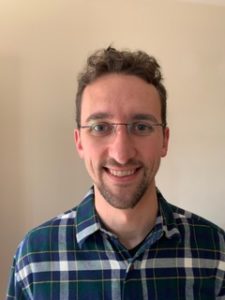
PHIND Seminar Series: Moving Magnetic Resonance Imaging Towards a Low-Cost High-Value Medical Imaging Modality
Akshay Chaudhari, Ph.D.
Instructor
Department of Radiology
Stanford University
12:00pm – 1:00pm Seminar & Discussion
RSVP Here: https://www.onlineregistrationcenter.com/AChaudhari
The seminar will be available via a zoom live stream.
Meeting URL: https://stanford.zoom.us/j/257831873
Dial: +1 650 724 9799 (US, Canada, Caribbean Toll) or +1 833 302 1536 (US, Canada, Caribbean Toll Free)
Meeting ID: 257 831 873
ABSTRACT
Magnetic Resonance Imaging (MRI) is a medical imaging modality that offers exquisite resolution and soft-tissue contrast. It is an integral component in diagnostic radiology as well as in basic science research studies due its sensitivity in detecting subtle variations in tissue structure. While MRI can provide a rich source of information, typical acquisition times of 30-40 minutes can limit further widespread use, increase costs, and diminish the patient experience. Moreover, the high-resolution and multi-dimensional MRI datasets can also cause a challenge for efficient and accurate image interpretation. In this talk, through specific examples in musculoskeletal MRI, I will cover recent advances in MRI aided by classical engineering techniques as well as deep learning to substantially reduce the duration of MRI exams and for subsequent image analysis. I will describe how these efforts are helping change the paradigm of MRI by reducing costs and increasing efficiency.
ABOUT
Dr. Akshay Chaudhari is an Instructor in the Radiological Sciences Lab (RSL) and Precision Health and Integrated Diagnostics (PHIND) sections in department of Radiology who works at the interface of radiology and artificial intelligence. His research interests include developing efficient and safer medical imaging acquisition techniques, repeatable and accurate image analysis tools, and on multi-modality sensor fusion. He graduated with honors with a B.S. in Bioengineering from the University of California San Diego in 2012 and completed his Ph.D. from Stanford Bioengineering in 2017 focusing on novel MRI methods to perform rapid quantitative musculoskeletal imaging. Dr Chaudhari received the National Science Foundation Graduate Research Fellowship, the Whitaker Fellowship, and the Siebel Fellowship to support his doctoral research. Dr. Chaudhari is the winner of the ISMRM W.S. Moore Young Investigator Award, and has won 6 additional young investigator awards for his work on advanced medical imaging acquisition and analysis techniques, and is a Junior Fellow of the ISMRM.
Hosted by: Sanjiv Sam Gambhir, M.D., Ph.D.
Sponsored by the PHIND Center and the Department of Radiology

PHIND Seminar Series
11:00-11:30 AM | Dr. Anoop Rao, M.D., M.S.
“Wearable Sensing for Neonates”
Clinical Instructor, Pediatrics (Neonatology)
Lucile Packard Children’s Hospital
Stanford University School of Medicine
11:30-12:00 PM | Dr. Eric Dy, Ph.D.
“Crowdsourced data and machine learning to design the future of prenatal care”
Co-founder and CEO
Bloomlife
12:00pm – 1:00pm Seminar & Discussion
RSVP Here: https://www.onlineregistrationcenter.com/PHIND061620
This seminar will be available in person and via a Zoom live stream.
Meeting URL: https://stanford.zoom.us/j/92848236311
Dial: +1 650 724 9799 or +1 833 302 1536
Meeting ID: 928 4823 6311
Dr. Anoop Rao Bio
Anoop Rao is a Clinical Instructor in Pediatrics (Division of Neonatology) at the Lucile Packard Children’s Hospital. After completing early medical training in India, he obtained his MS from MIT, and completed clinical training in Pediatrics from Columbia and fellowships in Neonatal Critical Care from Stanford and Biomedical Informatics from Harvard. He spent over 5 years at AgaMatrix, a startup focused on developing high-accuracy blood glucose meters.
At Stanford, his research is on contact and non-contact monitoring of infants. Anoop collaborates extensively with industry and is actively supported by NIH/Maternal and Child Health Research Institute.
Dr. Eric Dy Bio
Eric Dy, PhD is co-founder and CEO of Bloomlife, a women’s health company designing remote prenatal care solutions to improve the health of women and babies. Eric brings unique perspective on the opportunities and challenges in emerging healthcare technologies and delivery models informed by multidisciplinary technical expertise leading business development for Europe’s leading R&D institute, imec. Eric earned his BSc in Bioengineering from Cornell and his MSc and PhD in Biomedical Engineering from UCLA. Bloomlife has been recognized for their pioneering work winning Fast Company World Changing Ideas, Johnson & Johnson Quickfire Challenge, Richard Branson’s Extreme Tech Challenge, MedTech Innovator Award, and speaking at the White House Precision Public Health Summit.
Dr. Eric Dy Abstract
The period from conception through the first 1000 days of life are the most critical for lifelong health and development, yet too often we are failing women and babies at this time. High risk pregnancies are on the rise, access to care is increasingly a problem, and pregnancy complications such as preterm birth now affect 1 in 10 babies. Despite these growing challenges, the way we deliver prenatal care has not fundamentally changed in over 60 years. We need smarter tools, better data, and scalable solutions to improve the health of moms and babies globally.
In this talk Bloomlife co-founder and CEO will share their strategy for designing the future of prenatal care. He will discuss how clinical grade wearables, in the hands of mom, has helped create the largest dataset on pregnancy in the world, and how AI applied to this dataset is seeding breakthrough screening and diagnostic tools to help solve global maternal health issues including preterm birth.
Hosted by: Sanjiv Sam Gambhir, M.D., Ph.D.
Sponsored by: PHIND Center, Department of Radiology and eWEAR Initiative

PHIND Seminar Series: What is in your sweat and what can it mean for health and disease?
11:00 AM – 12:00 PM: Seminar & Discussion
RSVP: https://www.onlineregistrationcenter.com/VShankar
Presenter:
Vishnu Shankar, M.S.
Department of Chemistry
Stanford University
Principal Investigators:
Michael Snyder, Ph.D.
Stanford W. Ascherman, MD, FACS Professor in Genetics
Stanford University
Robert Tibshirani, Ph.D.
Professor of Biomedical Data Science and of Statistics
Stanford University
Richard Zare, Ph.D.
Marguerite Blake Wilbur Professor in Natural Science and Professor, by courtesy, of Physics
Stanford University
Location
Webinar URL: https://stanford.zoom.us/s/99817512229?pwd=QitCTjRXMEdBTWZyd29MTHYyNU5Xdz09
Dial: +1 650 724 9799 or +1 833 302 1536
Webinar ID: 998 1751 2229
Password: 489011
ABSTRACT
Sweat is a complex fluid known to be rich in electrolytes, small molecules, and fatty acids. Although adults can sweat up to 10 liters per day, little is still known about the chemical composition of sweat, how this changes, and what are its implications for health and disease. We demonstrate a powerful approach to help elucidate this link, where collecting samples simply requires swabbing a glass slide across one’s forehead in less than 30 seconds. Using the combination of desorption electrospray ionization mass spectrometry and statistical machine learning, our approach can successfully detect over 10,000 metabolites in sweat and identify metabolic changes in the sweat profile related to gender, age, and disease. As an example, we demonstrate in a cohort of 65 subjects the possibility of using just a few metabolites detected in sweat to successfully identify patients with renal disease. More generally, our approach suggests the possibility of using the sweat profile to non-invasively assess individual risk for metabolic diseases in the theme of “Precision Medicine.”
ABOUT VISHNU SHANKAR
Vishnu Shankar recently graduated with his master’s degree in computer science, with a specialization in artificial intelligence from Stanford University. He completed his bachelor’s degree with honors in mathematical and computational sciences in 2018, also at Stanford, with his senior thesis on Bayesian networks for incorporating effect modifiers in meta-analysis. In addition, his background spans biology, mathematics, chemistry, statistics, operations research, physics, and computing. Vishnu has published 6 papers and 3 articles in fields including protein structural prediction, comparison of clinical guidelines cost-effectiveness in type 2 diabetes, development of programs to combat mental illness, cancer diagnosis with analytical chemistry and machine learning, and related areas. He is also the founder of the CARES organization to support peer student wellness at college campuses, for which he won the Asoka Youth Changemaker award sponsored by Boehringer Ingelheim. Vishnu has enthusiastically pursued science since his middle school days and has worked on demonstrating the possibilities of DNA computing, simulating protein folding, studying the genetic modifications in fruits and vegetables, and more. He has been recognized for his scientific research as an Intel Science Talent finalist, Google Science Fair Regional finalist, recipient of the American Institute of Aeronautics and Astronautics Excellence award for his work on epidemiology modeling. Vishnu has interned at Caltech and Genentech, where he applied experimental techniques to purify and study protein behavior including dialysis, titration, chromatography for early stage drug development. He was also selected as one of the two high school students to represent the western US Confucius Institute in Student Leaders Exchange Program in China as a non-native Mandarin speaker.
Hosted by: Sanjiv Sam Gambhir, M.D., Ph.D.
Sponsored by the PHIND Center and the Department of Radiology

PHIND Seminar Series: Identifying Fibroblasts Subtypes Contributing to the Progression of Preinvasive to Invasive Lung Adenocarcinoma
Sylvia Plevritis, Ph.D.
Professor of Biomedical Data Science and of Radiology
Integrative Biomedical Imaging Informatics at Stanford
Stanford University
Location
Webinar URL: https://stanford.zoom.us/s/93945120934?pwd=a29GNjFCUzBtWjRsbFdnUnVUOTMzUT09
Dial: +1 650 724 9799 or +1 833 302 1536
Webinar ID: 939 4512 0934
Password: 767148
11:00am – 12:00pm Seminar & Discussion
RSVP: https://www.onlineregistrationcenter.com/SPlevritis
ABOUT
Dr. Sylvia K. Plevritis is Professor and Chair of Biomedical Data Science, Professor of Radiology at Stanford University and Program Director of the Stanford Biomedical Informatics Graduate Training Program. Dr. Plevritis leads a computational biology cancer research program that bridges genomics, imaging and population sciences to decipher properties of cancer progression and treatment response. Dr. Plevritis received her Ph.D. in Electrical Engineering and M.S. in Health Services Research, both from Stanford University, with a focus on cancer imaging physics and modeling cancer outcomes, respectively. She has had a primary authorship role on over 100 scientific cancer-related articles. She is a fellow of the American Institute for Medical and Biological Engineering (AIMBE) and Distinguished Investigator in the Academy of Radiology Research. She serves on the NCI Board of Scientific Advisors, the Program Leadership Committee of the Stanford Cancer Institute and the Leadership Council of the Stanford Bio-X Program. Dr. Plevritis has served on numerous NIH study sections, chaired scientific programs for the several professional societies including the American Association for Cancer Research (AACR) and presented keynote lectures across multiple scales of computational cancer biology. Currently, she is the Program Director of the Stanford Center in Cancer Systems Biology (CCSB) and has been a Principal Investigator with the NCI Cancer Intervention Surveillance Network (CISNET) for over fifteen years. She has served as Program Director of the Stanford Cancer Systems Biology Scholars Program (CSBS), and co-Division Chief of Integrative Biomedical Imaging Informatics at Stanford (IBIIS).
Sponsored by the PHIND Center and the Department of Radiology

PHIND Seminar Series: Maintaining Competitive Advantage through Intellectual Capital
Soody Tronson, M.S., J.D.
Founder
Presque
Location & Timing
11:00am – 12:00pm Seminar & Discussion
Webinar URL: https://stanford.zoom.us/s/98817009379?pwd=U21pYnpCTUlxY3U2TEh4RmhvMXpvQT09
Dial: +1 650 724 9799 or +1 833 302 1536
Webinar ID: 988 1700 9379
Password: 767148
RSVP: https://www.onlineregistrationcenter.com/STronson
ABSTRACT
Digital health has provided a range of solutions, including health and wellness-related management, machine learning algorithms for pattern recognition, AI for genetic analysis, AI-enhanced clinical decision making, and virtual doctors that use AI for patient intake triage. Intellectual property can play an important role in providing a competitive advantage in the digital health industry. We will explore opportunities and challenges for protecting digital health technologies during the program, including patent eligibility challenges and the use of trade secrets.
ABOUT SOODY TRONSON
Soody Tronson is Founding Managing Counsel at STLG Law Firm, counseling domestic and international clients in IP and technology transactions in a wide range of technologies. In 2016 she formed, Presque, a company developing a line of medical devices for mothers and infants.
Soody has over 25 years of operational experience in technology, business, management, and law in start-up and fortune 100 companies, including Schering Plough Pharmaceuticals, Hewlett-Packard Co., Avantec Vascular, and the law firms of HellerEhrman and Townsend and Townsend.
Soody serves in board and leadership capacities with several organizations including the Association of Women in Science STEM to Market national accelerator; Licensing Executives Society USA/Canada, California Lawyers Association, and the Palo Alto Area Bar Association. Soody is a Commissioner with the city of Menlo Park; and an active hands-on volunteer with several civic organizations including Defy Ventures, an entrepreneurship training program for currently and formerly incarcerated. Soody has instructed courses in IP, licensing, and entrepreneurship at the University of California, Stanford University and European institutions. She is the co-author of the book “Women Securing the Future with TIPPSS for IoT: Trust, Identity, Privacy, Protection, Safety, Security for the Internet of Things.”
Hosted by: Garry Gold, MD
Sponsored by the PHIND Center and the Department of Radiology

PHIND Seminar Series: Serum Modulation of Mitochondrial Function as a Scalable Sensor of Insulin Resistance
Andrew Lipchik, Ph.D.
Postdoctoral Fellow – Michael Snyder Lab
Stanford University
11:00am – 12:00pm Seminar & Discussion
12:00pm – 12:15pm Reception & Light Refreshments
RSVP: https://stanford.zoom.us/webinar/register/7716009863360/WN_dbeuo7csS8q_AhR88XET0g
Location: Zoom
Webinar URL: . https://stanford.zoom.us/s/96358568342
Webinar ID: 963 5856 8342
Dial: +1 650 724 9799 or +1 833 302 1536 (Toll Free)
Password: 767148
ABSTRACT
The global epidemic of obesity is associated with the dramatic increase in the prevalence of type 2 diabetes mellitus (T2D) with an estimated 400 million people worldwide will have T2D by 2030. T2D is proceeded by insulin resistance (IR) for up to decades prior to onset of T2D. Current estimates suggest approximately one in three individuals are sufficiently insulin resistant to be at risk for IR complications including T2D, coronary heart disease and nonalcoholic fatty liver disease. IR often goes undiagnosed due to the complex, invasive and laborious nature of clamp assays preventing their universal application in the clinic. Surrogate measurements using fasting plasma glucose and insulin levels can estimate IR but are imprecise. There is a need for the identification of new biomarkers and assays for the detection and monitoring of IR. Here, we demonstrate the utility of cellular mitochondrial respiration in response to individuals’ serum as a sensor for personalized monitoring of insulin sensitivity. The modulation of insulin-dependent mitochondrial function by patient serum was highly correlated with insulin sensitivity as determined by the gold-standard modified insulin suppression test (IST). We further applied this methodology to monitor insulin sensitivity over time in response to illness as well as treatment with the insulin sensitizing medication, pioglitazone. Our results demonstrate the development and application of a novel surrogate measurement for the determination and monitoring of insulin sensitivity. This assay offers the advantages of minimal invasiveness and complexity compared to IST as well as superior correlation with IST compared to existing surrogate measurements.
ABOUT ANDREW LIPCHIK
Andrew Lipchik majored in Chemistry at Xavier University where he preformed research on the development of oxygen activation Ni(II) complexes with Dr. Craig Davis and Dr. Michael Baldwin at the University of Cincinnati. He went on to obtain his PhD from Purdue University under mentorship of Dr. Laurie Parker. His thesis work focused on identifying determinants of kinase substrate specificity. This understanding was applied to the development of novel kinase-specific peptide biosensors to monitor intracellular kinase activity. Following his graduate work, he joined the laboratory of Michael Snyder at Stanford University where he has focused on understanding the impact of the immune system on insulin resistance and glucose metabolism.
Hosted by: Garry Gold, M.D.
Sponsored by the PHIND Center and the Department of Radiology

PHIND Seminar Series: Identifying Microbiome Markers of Progression of Alzheimer’s Disease
Ami Bhatt, M.D., Ph.D.
Assistant Professor of Medicine (Hematology) and of Genetics
Stanford University
Gavin Sherlock, Ph.D.
Associate Professor of Genetics
Stanford University
11:00am – 12:00pm Seminar & Discussion
RSVP: https://stanford.zoom.us/webinar/register/8016040837299/WN_iBOM7R4XQjOPSb20rkUxbw
Location: Zoom Webinar
Webinar URL: https://stanford.zoom.us/s/99730716280
Webinar ID: 997 3071 6280
Dial: +1 650 724 9799 or +1 833 302 1536 (Toll Free)
Password: 767148
ABOUT AMI BHATT
In perpetual awe of how ‘simple’ microbial organisms can perturb complex, multicellular eukaryotic organisms, Ami Bhatt has chosen to dedicate her research program to inspecting, characterizing and dissecting the microbe-human interface. Nowhere is the interaction between hosts and microbes more potentially impactful than in immunocompromised hosts and global settings where infectious and environmental exposures result in drastic and sometimes fatal health consequences.
Ami’s group identifies problems and questions that arise in the course of routine clinical care. Often in collaboration with investigators at Stanford and beyond, the group applies modern genetic, molecular and computational techniques to seek answers to these questions, better understand host-microbe interactions and decipher how perturbation of these interactions may result in human disease phenotypes.
GAVIN SHERLOCK’S RESEARCH INTERESTS
Adaptive Evolution and the Fitness Landscape: When yeast are evolved under various selective pressures in a chemostat, mutations that arise and provide an adaptive advantage will expand within the population. We have pioneered the use of high throughput sequencing to determine the identity of such mutations, as well as to understand the dynamics of the mutations within the populations, and the interactions between the mutations (such as epistasis). Further, we have developed a DNA barcode based lineage tracking system to determine the distribution of fitness effects (DFE) for newly arising beneficial mutations. We have also characterized what we call the genotype-fitness map for beneficial mutations, and have investigated why beneficial mutations provide a positive fitness effect. We are also interested in how beneficial mutations trade-off for different traits, and how those trade-offs constrain adaptive evolution.
Hosted by: Garry Gold, M.D.
Sponsored by the PHIND Center and the Department of Radiology

PHIND Seminar Series: Topics Below
Ahmed Metwally, PhD
“Pre-symptomatic detection of COVID-19 via wearables biosensors”
Postdoctoral Scholar – Michael Snyder, PhD Lab
Department of Genetics
Stanford University
Pierre-Alexandre Fournier, MS
“Continuous remote cardiorespiratory and health monitoring using the Hexoskin biometric shirt”
Co-founder and CEO
Hexoskin
Location: Zoom Webinar
Webinar URL: https://stanford.zoom.us/s/98925964231
Dial: +1 650 724 9799 or +1 833 302 1536 (Toll Free)
Webinar ID: 989 2596 4231
Passcode: 298382
11:00am – 12:00pm Seminar & Discussion
RSVP: https://stanford.zoom.us/webinar/register/WN_bruT-pvvQUePuBLqm2SLkQ
Ahmed Metwally Abstract
Wearable devices digitally measuring vital signs have been used for monitoring health and illness onset and have a high potential for real-time monitoring and disease detection. As such, they are potentially useful during public health crises, such as the current COVID-19 global pandemic. In my talk, I’ll discuss how wearables biosensors can be used as a tool to early detect COVID19 onset using physiological and activity data. By using retrospective smartwatch data, we showed that 63% of the COVID-19 cases could be detected before symptom onset in real-time via the occurrence of extreme elevations in resting heart rate relative to the individual baseline. Our findings suggest that consumer wearables may be used for the large-scale real-time detection of respiratory infections, often pre-symptomatically, and provide an approach for managing epidemics using digital tracking and health monitoring.
About Ahmed Metwally
Ahmed Metwally is a postdoctoral scholar in the Snyder lab at Stanford University. Ahmed received his Ph.D. in Bioinformatics/Bioengineering and MS in Computer Science (focused on Deep Learning), both from the University of Illinois at Chicago (UIC) in 2018. He currently works on developing novel machine learning methods for longitudinal multimodal biomedical data fusion (omics and wearable biosensors data) to early detect cardiometabolic diseases and personalize their treatments. Ahmed has received numerous awards, such as NIH Predoctoral Translational Scientist fellowship, ISMB’20 best talk award, Stanford COVID-19 RISE Grant, second-place award at Stanford Health++ Hackathon, and many travel awards NSF, IEEE, ISCB, and UIUC for various educational and scholarly activities.
Pierre-Alexandre Fournier Abstract
The Hexoskin Connected Health platform will be discussed as an example of a biometric shirt validated for use in telehealth and clinical research. Hexoskin has the only clinically validated biometric garment which provides continuous monitoring of numerous and unique physiological parameters. Hexoskin is an enabling technology for telehealth use cases, such as remote patient monitoring, rehab, and detect the onset of illness. Hexoskin offers a unique set of high-resolution biometric data that can continuously monitor activity, sleep, cardiac and respiratory data. Projects in fields such as cardiology, respiratory, behavioral and physiological psychology, biofeedback research, sleep research, and health will be described. The Hexoskin Connected Health Platform provides researchers with accessible solutions such as the Hexoskin Dashboards, Open API, and Apps to manage, visualize, annotate, analyze, and export raw & processed health data. Data extraction tools allow access to the raw data with time series for machine learning and artificial intelligence projects.
About Pierre-Alexandre Fournier
Pierre-Alexandre Fournier is co-founder and CEO of Hexoskin, a Montreal-based company focused on clinical-grade wearable sensors and AI software for health and clinical research. Hexoskin was founded in 2006 and in 2013 released the first iPhone compatible smart clothing for health monitoring, winning several international awards. In 2018 Hexoskin launched a remote health monitoring system for astronauts on the International Space Station. Hexoskin recently reached the milestone of 100 scientific publications. Pierre-Alexandre earned his MASc and his BEng in Electrical Engineering from the Ecole Polytechnique de Montreal and became a lecturer there teaching machine learning. He completed the Harvard Business School HBX Core program with high honors. Pierre-Alexandre is also an advocate for transparency in healthcare, patient empowerment, and healthcare innovation through design.
Hosted by: Angela McIntyre, Executive Director, eWEAR Initiative
Sponsored by: PHIND Center, Department of Radiology, eWEAR Initiative

MIPS Seminar Series: Translational Opportunities in Glycoscience
Carolyn Bertozzi, PhD
Director, ChEM-H
Anne T. and Robert M. Bass Professor in the School of Humanities and Sciences
Professor, by courtesy, of Chemical and Systems Biology
Stanford University
Location: Zoom
Webinar URL: . https://stanford.zoom.us/j/94010708043
Dial: US: +1 650 724 9799 or +1 833 302 1536 (Toll Free)
Webinar ID: 940 1070 8043
Passcode: 659236
12:00pm – 12:45pm Seminar & Discussion
RSVP Here
ABSTRACT
Cell surface glycans constitute a rich biomolecular dataset that drives both normal and pathological processes. Their “readers” are glycan-binding receptors that can engage in cell-cell interactions and cell signaling. Our research focuses on mechanistic studies of glycan/receptor biology and applications of this knowledge to new therapeutic strategies. Our recent efforts center on pathogenic glycans in the tumor microenvironment and new therapeutic modalities based on the concept of targeted degradation.
ABOUT
Carolyn Bertozzi is the Baker Family Director of Stanford ChEM-H and the Anne T. and Robert M. Bass Professor of Humanities and Sciences in the Department of Chemistry at Stanford University. She is also an Investigator of the Howard Hughes Medical Institute. Her research focuses on profiling changes in cell surface glycosylation associated with cancer, inflammation and infection, and exploiting this information for development of diagnostic and therapeutic approaches, most recently in the area of immuno-oncology. She is an elected member of the National Academy of Medicine, the National Academy of Sciences, and the American Academy of Arts and Sciences. She also has been awarded the Lemelson-MIT Prize, a MacArthur Foundation Fellowship, the Chemistry for the Future Solvay Prize, among many others.
Hosted by: Katherine Ferrara, PhD
Sponsored by: Molecular Imaging Program at Stanford & the Department of Radiology

PHIND Seminar Series: Maternal Trauma History, Attachment Style, and Depression Are Associated with Broad DNA Methylation Signatures in Infants
Thalia Robakis, M.D., Ph.D.
Associate Professor
Department of Psychiatry
Mount Sinai School of Medicine
Location: Zoom
Webinar URL: https://stanford.zoom.us/s/95483174518
Dial: US: +1 650 724 9799 or +1 833 302 1536 (Toll Free)
Webinar ID: 954 8317 4518
Passcode: 179384
11:00am – 12:00pm Seminar & Discussion
RSVP Here
ABSTRACT
Background: The early environment provides many cues to young organisms that guide their development as they mature. Maternal personality and behavior are an important aspect of the environment of the developing human infant. The molecular mechanisms by which these influences are exerted are not well understood. We attempted to identify whether maternal traits could be associated with alterations in DNA methylation patterns in infants.
Methods: 32 women oversampled for history of depression were recruited in pregnancy and provided information on depressive symptoms, attachment style, and history of early life adversity. Buccal cell DNA was obtained from their infants at six months of age for a large-scale analysis of methylation patterns across 5×106 individual CpG dinucleotides, using clustering-based criteria for significance to control for multiple comparisons. Separately, associations between maternal depression, attachment style, and history of adversity and psychobehavioral outcomes in preschool-age children were examined.
Results: Tens of thousands of individual infant CpGs were alternatively methylated in association with each of the three studied maternal traits. Genes implicated in cell-cell communication, developmental patterning, growth, immune function/inflammatory response, and neurotransmission were identified. The result sets were highly coextensive among the three maternal traits, but areas of divergence exhibited intriguing parallels with behavioral outcomes.
Conclusions: Maternal personality traits are an important aspect of the infant environment that shapes offspring development in many ways. Infant genes that are epigenetically modified in reponse to maternal traits are potential candidate mediators for these effects. We have identified a large number of such genes and demonstrated parallels to clinically measurable outcomes in children.
ABOUT
Dr. Robakis is a psychiatrist with clinical and research interests in perinatal mood disorders and in the contribution of early life experiences to adult mental health and illness. She completed her M.D. as well as a Ph.D. in developmental neurobiology at Columbia University’s Medical Scientist Training Program, residency training in psychiatry at Stanford University School of Medicine, and a research fellowship in perinatal mood disorders also at Stanford. She remained on the clinical faculty at Stanford until 2019, when she accepted a position at the Icahn School of Medicine at Mount Sinai, where she is currently Associate Clinical Professor of Psychiatry and Assistant Director of the Women’s Mental Health Program.
Dr. Robakis’ research interests include the effects of early life stress and disordered attachment on risk for psychiatric illness in the perinatal period, on alterations in metabolism and cognition, and on psychobehavioral development in offspring. She is particularly interested in using epigenetic marks to help identify the biological pathways through which early life experiences exert their effects on outcomes in adulthood and intergenerationally.
Hosted by: Garry Gold, M.D.
Sponsored by the PHIND Center and the Department of Radiology